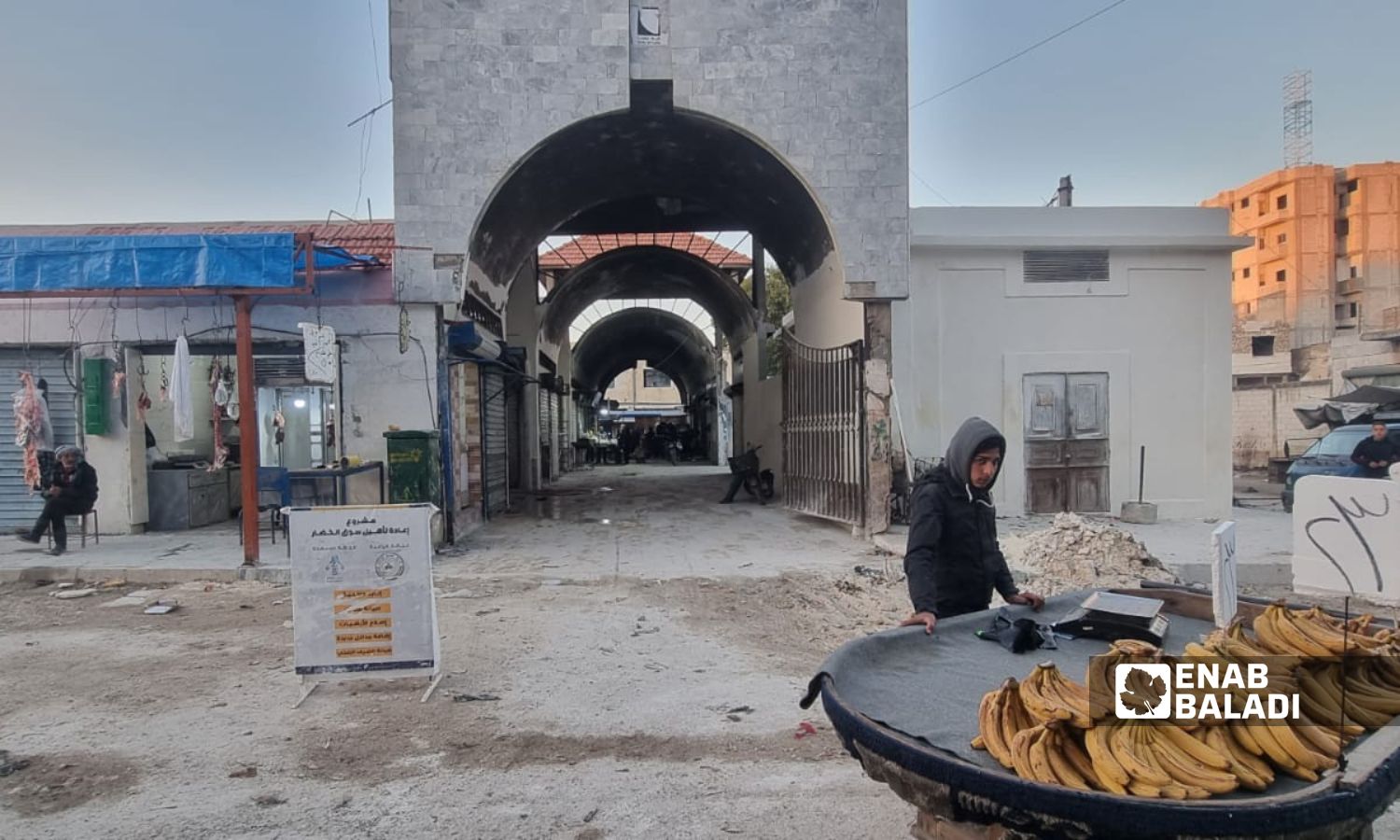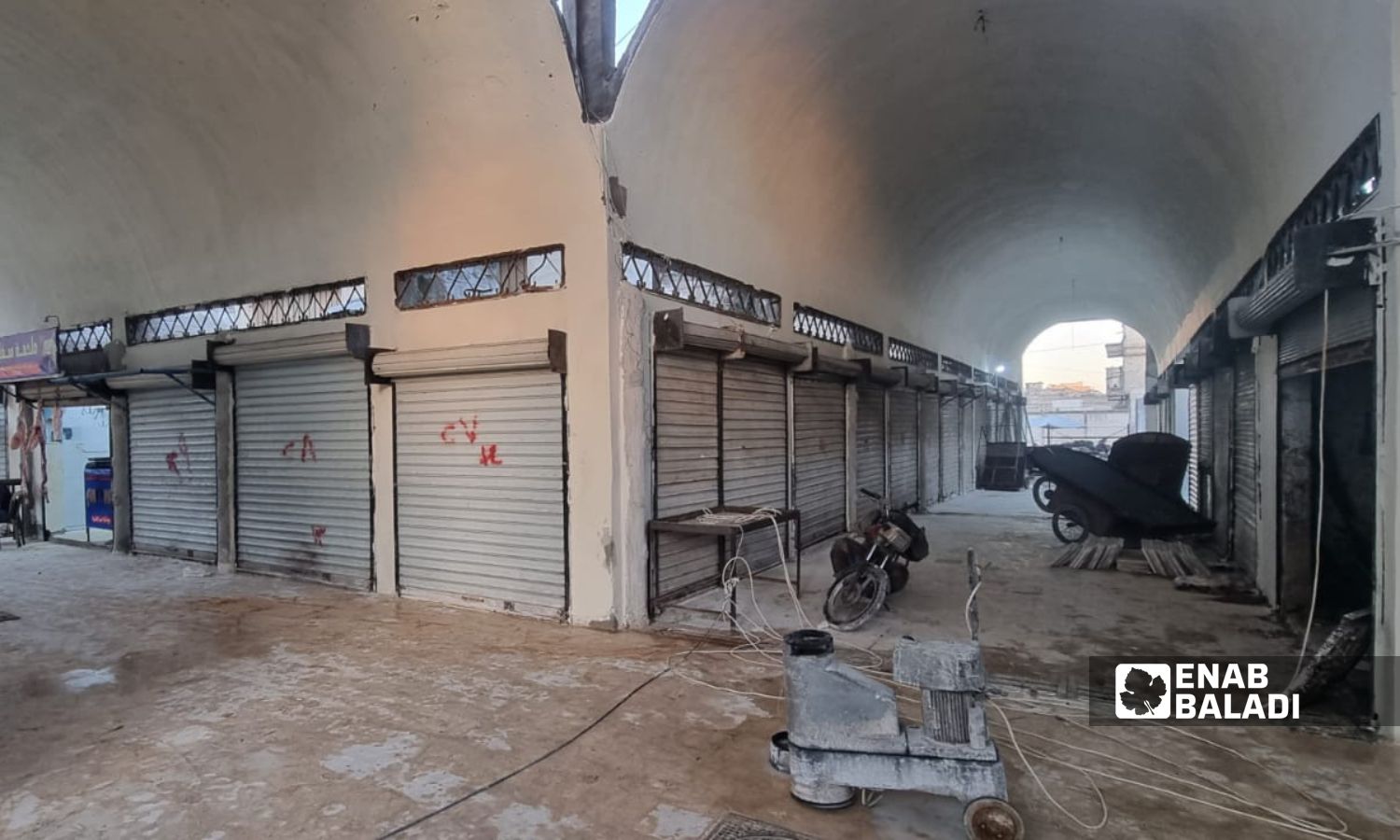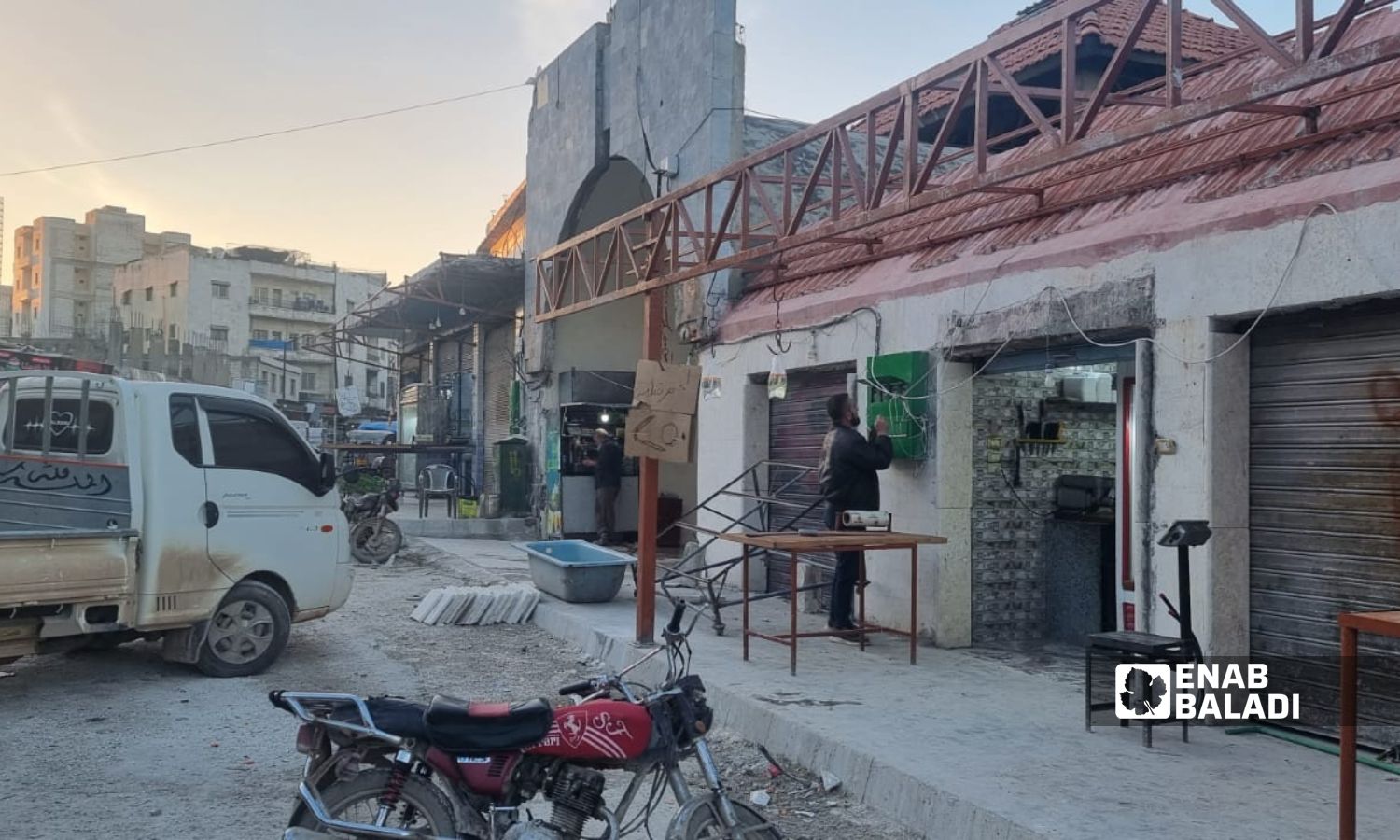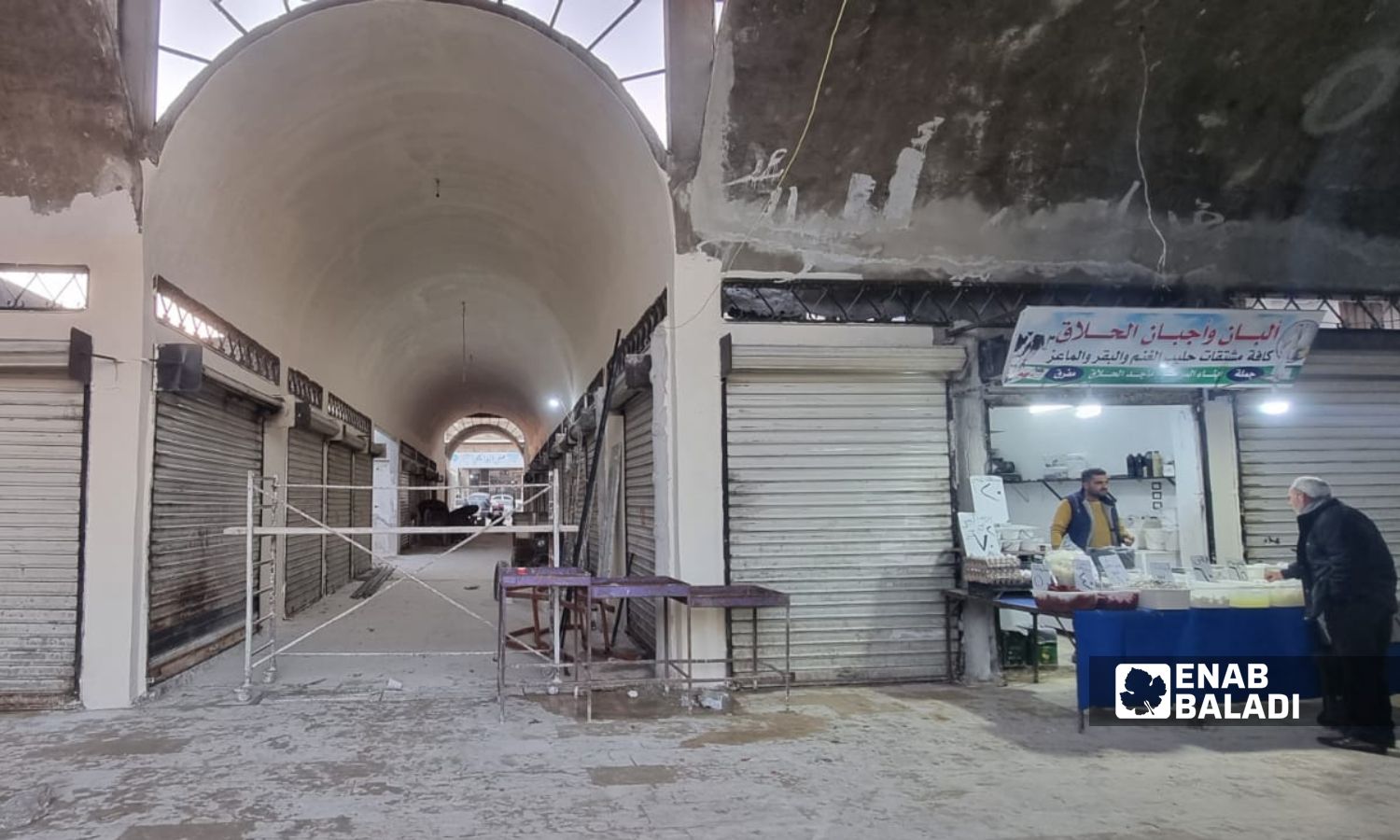



Abdul Latif al-Kishk (40 years old) is hopeful that the rehabilitation of the vegetable market in Idlib will solve the problems of the shop owners that have caused them significant losses since the market’s establishment in 2023. After the shops opened at that time, customers had difficulty reaching them due to the spread of stalls at the market entrances and the lack of sufficient lighting inside, as well as the prevalence of dirt and foul odors.
Al-Kishk, a vegetable shop owner in the market, said that he lost 25,000 Turkish lira (the dollar being equivalent to 32 Turkish lira) in the vegetable trade, considering that the primary cause of his loss was due to the scattered stalls around the market and at its entrances.
The problem dates back to the year 2023, after the establishment of the market, the shop owners submitted several complaints to the Municipality of Idlib to remove the barriers preventing customers from entering, to which the municipality recently responded and worked on rehabilitating it.
The market and the shops built in the market square have a total of 100 shops, yet the owners of these shops were forced to shut them down due to recurring losses caused by customers not reaching them, and most of them preferred to sell at vegetable stalls in front of the vegetable market to compensate for their losses.
Shop owners in the vegetable market believe that rehabilitation will not have positive results unless the problem of random stalls and carts is resolved and alternative markets are opened in other areas of the city, such as the market in al-Hussein Square and the roundabout of al-Kastana, transferring the owners of stalls and carts to them.
The citizens of Idlib prefer buying vegetables from the stalls at the market entrances because their prices are lower than the shops, and entering the roofed areas of the market is difficult for them due to the foul smell, lack of cleanliness, and insufficient lighting.

Rehabilitation of the vegetable market in the city of Idlib – March 9, 2024 (Enab Baladi/Anas al-Khouli)
Stall owners in Idlib are incredibly anxious about being prevented from selling vegetables in front of the market, which would cut off their livelihood after the rehabilitation process is completed, amidst the absence of alternative solutions.
Mohammad Mu’touq (41 years old), owner of a vegetable stall in front of the market who has been working in the vegetable trade for ten years, was unable to get a shop in the market despite applying to the municipality several times, with all his requests being rejected.
Mu’touq told Enab Baladi that he has no alternative for work if he does not get a shop from the municipality, whether in the market or in another alternative market, noting that he continues to sell at the stall despite the penalties he may face.
In Idlib, the municipality is implementing strict measures to limit the spread of carts, starting with confiscating the scales on the cart or stall, followed by a warning, and in case of repeat offenses, the cart and the goods on it are confiscated, and the seller is referred to the competent authorities and considered in violation.

Rehabilitation of the vegetable market in the city of Idlib – March 9, 2024 (Enab Baladi/Anas al-Khouli)
The spread of unemployment in the city and the halting of many professions have forced citizens to look for solutions to secure a living. A significant number turned to selling vegetables, which led to the inability of the markets to accommodate the sellers and the proliferation of stalls in front of the markets and between neighborhoods.
The vendor Mu’touq explained that the vegetable sellers try to cope with the difficult economic reality, barely making enough to meet their basic needs. They try to improve their income by applying for a shop inside the market, but the shops are not sufficient for the number of sellers.
Mu’touq believes that the solution lies in the municipality fulfilling its promises to open more alternative markets in different places around the city, which would help alleviate the pressure and overcrowding of sellers in the vegetable market.

Rehabilitation of the vegetable market in the city of Idlib – March 9, 2024 (Enab Baladi/Anas al-Khouli)
The consultant to the Minister of Local Administration, Zafer al-Omar, told Enab Baladi that the sponsor and financier of the rehabilitation of the vegetable market is the local administration, while the executing agency is the General Housing Administration.
He elucidated that the rehabilitation project aims to activate the internal section of the market and reduce external congestion to achieve a good overall appearance, remove old violations within the market resulting from building new shops which led to the closure of some main entrances, and the need for repairing some building elements damaged by the earthquake, threatening the safety of passersby and shop owners.
Al-Omar mentioned that the project would help rehabilitate 70% of the shops not previously used, carry out comprehensive maintenance of the sewage network, supply the project with a main freshwater network, relocate garbage dumps to designated areas, unify the surrounding umbrellas across the entire market facade, and install an internal lighting network.
He added that the rehabilitation process also includes adding new entrances to the market, increasing movement and the number of active shops, and thereby providing new job opportunities for about 100 families.
The rehabilitation includes the addition of 10 shops and garages within the surrounding streets, accommodating about 35 cars, indicating that the project will be completed within days, while the garages and new shops are expected to be ready before Eid al-Fitr.
In northwest Syria, there are 4.5 million people, 4.1 million of whom need assistance, 3.3 million of whom suffer from food insecurity, 2.9 million are internally displaced, and two million live in camps, according to the United Nations. Meanwhile, local statistics indicate that there are 5.5 to 6 million people.
if you think the article contain wrong information or you have additional details Send Correction